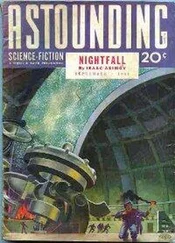She hadn’t known Jock’s sister-in-law’s name until Bert told Kathleen. “This is Jock’s sister-in-law, Mary, Kathleen,” he’d said and Auntie’s sister said she was pleased to meet her.
Then it was Edna’s turn to meet this Mary. At least Auntie’s voice wasn’t among theirs and Minty knew this was because of the praying and the flowers on her grave. Jock’s wasn’t, for the same reason. She couldn’t do those things for the others, she couldn’t spend her life hunting for graves of dead people, which might be anywhere in the country, anywhere in the world. Their invisibility was only temporary. After a while they began to take shape and form, Bert first, thin and insubstantial, not much more than a darkness that shouldn’t have been there. How did she know it was Bert? She’d never seen him, never heard his voice, she wasn’t even born when he came into Auntie’s life and went out of it, but she knew.
Kathleen and Edna were weak and transparent, and sometimes she saw them as shadows only. Mary too, another inhabitant of her life she’d never seen and one she’d never even heard mentioned. The daughter-in-law Mrs. Lewis loved and welcomed when she came to join her. Sunlight had penetrated the gap between the half-closed curtains and onto its brightness their three shadows fell, but without bodies to cast them.
The evening she went to the cinema with Laf and Sonovia-their first visit for a long time-all the ghost voices stayed at home or went away to wherever they lived when they weren’t bothering her and all the ghost shapes were swallowed up by the night and the bright lights. It might be because she was with real living people that they left her alone. On the other hand she’d seen Kathleen several times while she was with the Wilsons and there was the time when Jock had actually followed her into Sonovia’s bedroom when she’d tried on the blue dress. It was hard to know. Most of the time she was confused and bewildered.
She had other worries to plague her. Josephine had started talking about giving up the shop and being a full-time housewife and mother, though there was no sign as yet of motherhood. Ken had been offered a partnership in the Lotus Dragon and had accepted it. There was no real need for her to work. Minty wasn’t to trouble her head about it. Whoever took over would be bound to keep her on. “No one can iron shirts the way you do, Minty,” said Josephine. “They’d be mad to let you go.”
That word “mad” always made Minty nervous. Someone had said it to her on the bus when she’d told the voice that was hissing and whispering at her to go away. “I don’t know,” she said, trying to ignore Mary Lewis, who had her ghost lips to her ear and was saying she’d have to have computer skills and business qualifications for them to keep her on. Being skilled at ironing wasn’t enough these days. “I don’t know. Suppose they give up the shirt service? Suppose they just do dry-cleaning?”
“They’d have to be mad.” Josephine was very keen on that word. “Don’t worry. I may decide to stick it out a few more years. Till I fall for a baby, anyway.”
Minty ran her hand down the length of the new knife she still wore strapped to her right leg. She’d have felt half-dressed without it now, though she sometimes wondered what she was going to use it for. Mary would have been a good candidate, only Minty had only seen her shadow, a thin woman with long hair and long legs. But she no more appeared in the shape of a real human being than the aunts did or the uncles. They just chattered away among themselves, the best of friends, when they weren’t talking to her. Except for Mary, who was always rowing with Kathleen.
She didn’t know which was better, seeing them and hearing them or just hearing them. She tried to find things to do that they’d hate, walking the streets, getting in a jam-packed tube train, going down to Oxford Street, where there was always such a dense crowd strolling aimlessly along the pavements that you could lose yourself among the people. For a while their voices would go away but they always came back to persecute her. The evening she went out with Sonovia and Laf the cinema was full of people; it was a good job Laf had booked, there wasn’t an empty seat that she could see. The ghost voices who talked to her when she went alone to the pictures in the afternoon had disappeared. Every time this happened she couldn’t cure herself of hoping they were gone forever. She sat listening for them, savoring the quiet, oblivious to what was coming out of the screen, until Sonovia asked her in a whispered hiss if she was in a trance.
When Josephine was in the shop and when Ken dropped in, when one customer after another came in, her head was mostly silent. That was why she’d stopped going home at lunchtime. She knew they’d be there and it would be like walking in among a mass of chattering people, all expectant, all waiting for something, like the theater audience before the curtain went up on An Inspector Calls . She didn’t want to be their play, their show, but over that she had no control.
Food was the reason she went home that Thursday lunchtime. She’d forgotten her sandwiches, though she’d made them, chicken and lettuce and tomato on white bread, wrapped them in greaseproof paper and polyethylene, and put them in the fridge. Left them in the fridge. It was something she’d never have done normally but that morning she’d rushed out of the house to escape Mary’s voice and Uncle Wilfred’s. She walked, though she’d gone to Immacue on the 18 bus. It was a nice, sunny day, autumnal though and with a nip in the air. A year ago she’d have been looking forward to going out with Jock in the evening, not dreaming that the train he was coming on from Gloucester would crash and kill him. He’d be saying his funny things to her. I went into the garden to fetch a cabbage leaf to make an apple pie and there I met a great she-bear who said, What, no soap? And promptly married the barber . There, she’d remembered it word for word.
It was a long walk and being used to it made it no shorter. Past the Flora pub and the Church of the Redeemer of God, past the eastern entrance to the cemetery, Kensal Green tube station, the garage, the boarded-up shops, the seat and flower bed where she’d got rid of Mrs. Lewis. She turned off Harrow Road before the western gate of the cemetery was reached and into Syringa Road. Her key went into the lock and she turned it, knowing what she’d find inside, voices and the sounds as of a crowd jostling each other.
The hall was still and, for a moment, she thought the whole place was silent. She closed her eyes, enjoying the peace. Then the voices began as whispers, Mary and Edna arguing, as they always did, Kathleen muttering about Jock’s ashes being in Brompton Cemetery. Just because Laf told her that story about Fortune Green didn’t mean they weren’t in Brompton. They were up in the far northeast corner and she could see the gravestone, Kathleen said, she could see his name on it and the dates of his birth and death. Edna broke in and said it was morbid living by a cemetery, she knew the effect it had had on her. If she had her time over again she’d move somewhere else.
Minty took a few steps toward the kitchen. Then she stopped, listening. A terrible thing had happened, the thing she knew couldn’t happen. She heard Jock singing upstairs. Just walk on by. Wait on the corner…
His voice had lightened and risen a little. Perhaps that was what happened when ghosts sang. Their voices thinned and blurred as their bodies did. This time, she was sure, she’d see him. Maybe he’d come walking down the stairs, the way he had before. It hadn’t worked, the giving him flowers, he hadn’t liked them or it was the wrong place. She’d chosen the wrong place, armfuls of flowers should have been scattered everywhere on the grass, on the earth, on the paths, it wasn’t like a grave. She began touching wood, the banisters, the doors, the door frames, white wood and pink wood and brown wood. Her hands were shaking and she sobbed.
Читать дальше











